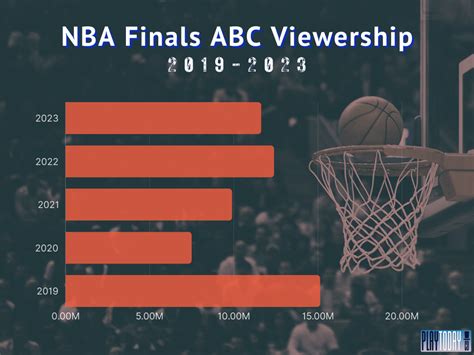
ABC’s decision to cut away from Game 1 of the NBA Finals between the Boston Celtics and Dallas Mavericks on Thursday night to broadcast the Indiana Pacers celebration parade has ignited a firestorm of criticism from basketball fans. Viewers across the nation, anticipating the highly-anticipated championship series, were left infuriated when the network switched coverage to Indianapolis, leaving many feeling shortchanged and prompting widespread condemnation on social media.
The abrupt transition occurred with roughly four minutes remaining in the fourth quarter of a tightly contested game, a decision that has sparked significant outrage among NBA fans. “I cannot believe they just cut away from the NBA Finals to show a parade,” one user posted on X, capturing the sentiment of many viewers. The game, which saw the Celtics ultimately defeat the Mavericks 107-89, was still unfolding when the broadcast shifted, causing viewers to miss crucial plays and the game’s conclusion.
ABC defended its decision, citing the significance of the Pacers’ Eastern Conference Finals victory and the desire to celebrate the team’s achievement with their fans. However, this justification has done little to quell the backlash, with many arguing that the NBA Finals, a marquee event with national and international viewership, should have taken precedence. The move has raised questions about the network’s priorities and its understanding of the expectations of its audience.
The incident underscores the delicate balance networks must strike when juggling multiple broadcasting commitments. While honoring local sports achievements is important, the decision to interrupt the NBA Finals, one of the most-watched sporting events of the year, has been widely perceived as a misstep. The fallout from this decision is likely to continue, with fans expressing their disappointment and questioning ABC’s future broadcasting choices.
The Pacers’ parade celebrated their remarkable playoff run, which saw them reach the Eastern Conference Finals for the first time since 2014. This achievement is undoubtedly a significant moment for the team and its fans, warranting recognition. However, the timing of the broadcast, coinciding with the NBA Finals, has been the primary source of contention.
The shift in coverage occurred as the Celtics were closing out the game, leading by a comfortable margin. While the outcome was largely decided, the final minutes of any NBA Finals game are typically filled with ceremonial moments, player reactions, and post-game analysis, all of which were missed by viewers who were switched to the parade coverage.
The decision to cut away from the NBA Finals also sparked discussions about the value placed on different sports and fan bases. Some viewers felt that ABC’s decision prioritized a regional celebration over a national sporting event, suggesting a bias towards local interests. This perception has further fueled the criticism, with many accusing the network of disrespecting the NBA Finals and its viewers.
Adding fuel to the fire, many fans took to social media to voice their frustration and disappointment. Platforms like X (formerly Twitter), Facebook, and Reddit were flooded with comments criticizing ABC’s decision and expressing solidarity with those who felt their viewing experience was compromised. The hashtag #NBAFinals trended nationally as fans shared their reactions and called for accountability from the network.
“Seriously @ABC cut off the end of the NBA Finals for a Pacers parade that nobody cares about outside of Indiana? #NBAFinals,” another user wrote on X, reflecting the widespread sentiment. The volume and intensity of the online backlash underscore the significant impact of the decision on the viewing audience.
Furthermore, the incident has raised questions about the future of sports broadcasting and the challenges networks face in catering to diverse audiences. With an increasing number of sporting events vying for airtime, networks must carefully consider their programming choices and prioritize events that resonate with the widest possible audience. The backlash against ABC’s decision serves as a cautionary tale about the potential consequences of misjudging viewer expectations.
The game itself saw a dominant performance by the Boston Celtics, led by Jaylen Brown, who scored 22 points, and Kristaps Porziņģis, who added 20 points in his return from injury. Luka Dončić led the Mavericks with 30 points, but his efforts were not enough to overcome the Celtics’ balanced attack and stifling defense. The Celtics’ victory gave them a 1-0 lead in the series, setting the stage for a potentially thrilling championship showdown.
However, the focus has largely shifted away from the game itself and towards the controversy surrounding ABC’s broadcasting decision. The network’s attempt to celebrate the Pacers’ achievement has inadvertently overshadowed the NBA Finals, creating a public relations challenge that it must now address.
The incident also highlights the importance of communication and transparency in sports broadcasting. Had ABC provided viewers with advance notice of the planned switch, it might have mitigated some of the backlash. However, the abrupt nature of the transition caught many viewers off guard, leading to feelings of frustration and betrayal.
Moreover, the controversy underscores the evolving nature of sports fandom and the increasing importance of social media in shaping public opinion. In the past, viewers might have simply accepted such decisions without complaint. Today, however, fans have a powerful platform to voice their concerns and hold networks accountable for their actions.
The fallout from ABC’s decision is likely to continue in the days and weeks ahead. The network may face pressure to issue a formal apology or to adjust its future broadcasting plans to avoid similar incidents. The controversy also serves as a reminder of the passion and dedication of NBA fans and their unwavering commitment to the sport.
The episode also brings into sharp focus the logistical complexities of live sports broadcasting. Scheduling conflicts and competing interests are common challenges for networks, but the decision to interrupt the NBA Finals has been widely viewed as an avoidable error in judgment.
The Celtics’ victory in Game 1 was a significant moment in their quest for an NBA championship. The team’s strong performance, combined with the return of Kristaps Porziņģis, has instilled confidence in their fans and raised expectations for the remainder of the series. However, the controversy surrounding ABC’s broadcasting decision has somewhat diminished the significance of the victory, diverting attention away from the on-court action.
The Mavericks, on the other hand, will be looking to bounce back in Game 2 and prove that they can compete with the Celtics on their home court. Luka Dončić’s individual brilliance is undeniable, but the Mavericks will need to improve their overall team performance if they hope to even the series.
The NBA Finals is one of the most-watched sporting events in the world, attracting millions of viewers from diverse backgrounds and cultures. The decision to interrupt the broadcast has not only angered fans in the United States but also those around the globe who were eagerly anticipating the championship series.
In conclusion, ABC’s decision to cut away from Game 1 of the NBA Finals to broadcast the Indiana Pacers celebration parade has sparked widespread outrage and criticism. The network’s attempt to celebrate a local team’s achievement has inadvertently overshadowed the NBA Finals, creating a public relations challenge that it must now address. The incident serves as a reminder of the importance of prioritizing viewer expectations and carefully considering the potential consequences of broadcasting decisions. The fallout from this decision is likely to continue, with fans expressing their disappointment and questioning ABC’s future broadcasting choices. The controversy also underscores the evolving nature of sports fandom and the increasing importance of social media in shaping public opinion. The NBA Finals is a global event, and the decision to interrupt the broadcast has angered fans around the world who were eagerly anticipating the championship series. The network’s justification has done little to quell the backlash, with many arguing that the NBA Finals, a marquee event with national and international viewership, should have taken precedence.
Expanded Details and Context:
The core issue at hand is the perceived disrespect shown to the NBA Finals, a sporting event of considerable magnitude and widespread appeal. To better understand the depth of the controversy, several factors need to be examined more closely:
-
The Significance of the NBA Finals: The NBA Finals represents the culmination of an entire basketball season. It’s the championship series where the best teams from the Eastern and Western Conferences compete for the ultimate prize: the Larry O’Brien Championship Trophy. Games are typically high-stakes, intensely competitive, and culturally significant, drawing massive television viewership globally. Cutting away from such a crucial event is akin to interrupting the Super Bowl or the World Cup final, events of paramount importance to sports fans worldwide. The NBA Finals represents the peak of professional basketball competition, symbolizing dedication, teamwork, and athletic excellence. Millions of viewers tune in to witness the drama, excitement, and spectacle of the Finals, making it a cultural phenomenon that transcends geographical boundaries. The decision to interrupt the broadcast undermined the prestige and importance of the NBA Finals, leaving many fans feeling that their passion for the sport was not respected.
-
The Pacers’ Accomplishment vs. NBA Finals Importance: The Indiana Pacers had a remarkable playoff run, reaching the Eastern Conference Finals for the first time in a decade. Their accomplishment is undoubtedly noteworthy and deserving of celebration within Indiana. However, the scale and scope of the NBA Finals far surpass a regional celebration. The Finals represent a national and international event, impacting a significantly larger audience. Balancing local interest with national viewership is a challenge, but many argue that the NBA Finals should have taken precedence in this specific scenario. The Pacers’ journey to the Eastern Conference Finals was a testament to their hard work, resilience, and determination. However, the decision to prioritize their celebration over the NBA Finals suggested a lack of appreciation for the broader context of the sporting world. The NBA Finals showcases the pinnacle of basketball talent, bringing together the best players and teams from across the league. It is a spectacle that captures the imagination of fans worldwide, inspiring dreams and aspirations. By cutting away from the Finals, ABC missed an opportunity to celebrate the sport’s highest achievements and to connect with a global audience.
-
Timing and Communication Failure: The timing of the broadcast switch was particularly problematic. Cutting away with four minutes remaining in a competitive game, even if the outcome seemed decided, denied viewers the chance to see the final moments, player reactions, and post-game analysis. Furthermore, the lack of advance notice compounded the frustration. Had ABC informed viewers beforehand about the planned switch, some of the backlash might have been mitigated. Transparency and communication are crucial in managing viewer expectations. The decision to cut away abruptly, without any warning or explanation, left viewers feeling blindsided and disrespected. The final minutes of a game, even if the outcome is largely determined, are often filled with emotional moments, such as players embracing, coaches strategizing, and fans celebrating. These moments contribute to the overall narrative of the game and provide closure for viewers. By interrupting the broadcast, ABC denied fans the opportunity to experience these moments and to fully appreciate the culmination of the game.
-
Social Media Backlash: The rapid and widespread condemnation on social media platforms like X, Facebook, and Reddit demonstrates the power of online communities in shaping public opinion. Fans used these platforms to express their disappointment, criticize ABC’s decision, and share their frustration with others. The trending hashtags and viral posts amplified the message and put pressure on the network to respond. Social media has become an integral part of the sports viewing experience, allowing fans to connect with each other, share their opinions, and react in real-time to events as they unfold. The online backlash against ABC’s decision highlighted the importance of social media in shaping public perception and holding networks accountable for their actions. Fans used social media to voice their concerns, share their frustration, and organize collective action. The sheer volume of negative comments and posts demonstrated the widespread dissatisfaction with ABC’s decision and the need for the network to address the issue.
-
The Broader Implications for Sports Broadcasting: This incident raises broader questions about the priorities and challenges faced by sports broadcasting networks. Balancing local interests with national and international viewership is a constant juggling act. Networks must carefully consider their programming choices and prioritize events that resonate with the widest possible audience. The ABC incident serves as a cautionary tale about the potential consequences of misjudging viewer expectations and alienating loyal fans. The sports broadcasting landscape is constantly evolving, with new platforms and technologies emerging to challenge traditional television networks. To remain competitive, networks must adapt to changing viewer preferences and ensure that they are providing high-quality, engaging content. The decision to cut away from the NBA Finals highlighted the need for networks to prioritize viewer experience and to avoid making decisions that could damage their reputation.
-
Viewer Perspective: The viewers who tuned in to watch the NBA Finals were expecting to see the entirety of the game, from start to finish. They had made a commitment of their time and attention to the event, and they felt that their expectations were not met when the broadcast was interrupted. The decision to cut away was perceived as a sign of disrespect for the viewers and their passion for the sport. Many viewers expressed disappointment that they were unable to witness the final moments of the game and to fully appreciate the culmination of the contest. They felt that ABC had prioritized a regional celebration over a national event, and that their interests as viewers had been ignored.
ABC’s Rationale vs. Public Perception:
While ABC justified its decision by highlighting the significance of the Pacers’ achievement and the desire to celebrate with their fans, this rationale has failed to resonate with the majority of viewers. The core argument against ABC’s decision centers on the scale and importance of the NBA Finals compared to a regional celebration. The Finals are a national and international event, attracting a massive audience and representing the pinnacle of professional basketball. In contrast, the Pacers’ parade, while undoubtedly important to the team and its fans, is a local event with limited appeal beyond Indiana.
Many viewers have argued that ABC could have found alternative ways to celebrate the Pacers’ achievement without interrupting the NBA Finals broadcast. For example, the network could have aired a taped segment of the parade during halftime or after the game. Alternatively, ABC could have provided online streaming coverage of the parade for those who were interested in watching it. These alternatives would have allowed ABC to celebrate the Pacers’ achievement without compromising the viewing experience for NBA Finals fans.
The public perception of ABC’s decision has been overwhelmingly negative, with many viewers expressing anger, disappointment, and frustration. The network’s attempt to justify its decision has been met with skepticism and criticism, with many arguing that the NBA Finals should have taken precedence. The incident has damaged ABC’s reputation and raised questions about its commitment to providing high-quality sports coverage.
FAQ (Frequently Asked Questions):
-
Why did ABC cut away from the NBA Finals Game 1?
- ABC cut away from the final minutes of Game 1 of the NBA Finals between the Boston Celtics and Dallas Mavericks to broadcast the Indiana Pacers’ Eastern Conference Finals celebration parade. The network cited the significance of the Pacers’ achievement and the desire to celebrate with their fans as the reason for the decision.
-
How did NBA fans react to the broadcast interruption?
- NBA fans reacted with widespread anger and disappointment. Many took to social media to express their frustration, criticizing ABC for prioritizing a regional celebration over a national and international sporting event. The hashtag #NBAFinals trended nationally as fans shared their reactions and called for accountability from the network.
-
What was the score of the game when ABC switched coverage?
- The Boston Celtics were leading the Dallas Mavericks by a comfortable margin with approximately four minutes remaining in the fourth quarter when ABC switched coverage to the Pacers’ parade. The Celtics ultimately won the game 107-89.
-
Could ABC have handled the situation differently?
- Yes, many viewers believe ABC could have handled the situation differently. Alternative solutions included airing a taped segment of the parade during halftime or after the game, or providing online streaming coverage of the parade for those who were interested in watching it. Advance notice of the planned switch could also have mitigated some of the backlash.
-
What are the broader implications of this incident for sports broadcasting?
- This incident highlights the challenges sports broadcasting networks face in balancing local interests with national and international viewership. It underscores the importance of prioritizing viewer expectations and carefully considering the potential consequences of broadcasting decisions. The incident also demonstrates the power of social media in shaping public opinion and holding networks accountable for their actions. It also underscores the need for more consistent and thoughtful sports broadcasting choices by major networks.
Analysis of the Broader Impact:
The ramifications of ABC’s decision extend beyond a simple broadcasting error. The incident has sparked a wider debate about media priorities, audience expectations, and the evolving role of sports in society.
-
Shifting Media Landscape: The incident underscores the fragmentation of the media landscape and the increasing competition for viewers’ attention. With the rise of streaming services and on-demand content, traditional television networks face growing pressure to attract and retain viewers. This competition may have influenced ABC’s decision to cater to a local audience in Indiana, even at the expense of a national audience watching the NBA Finals.
-
The Power of Collective Outrage: The social media backlash against ABC’s decision demonstrates the power of collective outrage in the digital age. The ability of fans to connect with each other, share their opinions, and organize collective action has made it more difficult for networks to ignore viewer concerns. This collective outrage can translate into tangible consequences, such as boycotts, subscription cancellations, and damage to a network’s reputation.
-
The Commodification of Sports: The incident also raises questions about the commodification of sports and the increasing emphasis on profits and ratings. Networks often prioritize events that generate the most revenue, even if it means compromising the viewing experience for some fans. This emphasis on profits can lead to decisions that alienate viewers and undermine the integrity of the sport.
-
The Importance of Authenticity: In an era of media saturation, authenticity is more important than ever. Viewers are increasingly drawn to content that feels genuine, relatable, and authentic. ABC’s decision to cut away from the NBA Finals was perceived by many as inauthentic and disrespectful to the sport and its fans. This lack of authenticity can erode trust and damage a network’s relationship with its audience.
-
The Future of Sports Broadcasting: The incident serves as a reminder of the challenges and opportunities facing the sports broadcasting industry. To thrive in the digital age, networks must adapt to changing viewer preferences, embrace new technologies, and prioritize the viewing experience. This requires a commitment to authenticity, transparency, and a deep understanding of the passions and expectations of sports fans.
Addressing the Fallout and Moving Forward:
To address the fallout from the incident and rebuild trust with its audience, ABC should consider the following steps:
-
Issue a Formal Apology: A sincere and heartfelt apology is a necessary first step in addressing the concerns of viewers. The apology should acknowledge the disappointment and frustration caused by the broadcast interruption and express a commitment to avoiding similar incidents in the future.
-
Engage with Fans: ABC should actively engage with fans on social media and other platforms to listen to their concerns and address their questions. This engagement should be genuine and transparent, demonstrating a willingness to learn from the mistake and improve future programming decisions.
-
Review Broadcasting Policies: ABC should review its broadcasting policies and procedures to ensure that viewer expectations are prioritized in future programming decisions. This review should involve input from fans, sports analysts, and other stakeholders.
-
Invest in Quality Programming: ABC should continue to invest in high-quality sports programming that resonates with a wide audience. This includes not only marquee events like the NBA Finals but also smaller, more niche sports that appeal to dedicated fans.
-
Embrace Innovation: ABC should embrace innovation and explore new ways to enhance the viewing experience for sports fans. This could include incorporating interactive elements, providing behind-the-scenes access, and experimenting with new formats and technologies.
By taking these steps, ABC can demonstrate its commitment to its viewers and rebuild trust in its brand. The incident serves as a valuable lesson about the importance of prioritizing viewer expectations, embracing authenticity, and adapting to the evolving media landscape.
In summary, the incident surrounding ABC’s decision to cut away from the NBA Finals highlights the delicate balance networks must strike between catering to local interests and serving a national audience. The widespread outrage and criticism underscore the importance of prioritizing viewer expectations, maintaining transparency, and embracing authenticity in sports broadcasting. The fallout from this decision is likely to continue to shape the conversation around sports media and the evolving relationship between networks and their viewers. The controversy serves as a valuable reminder of the passion and dedication of NBA fans and the responsibility that networks have to deliver a high-quality viewing experience. It’s a cautionary tale for all media outlets about the importance of knowing your audience and respecting their expectations. The NBA Finals, a global spectacle, deserves the uninterrupted attention of its broadcast partners.









